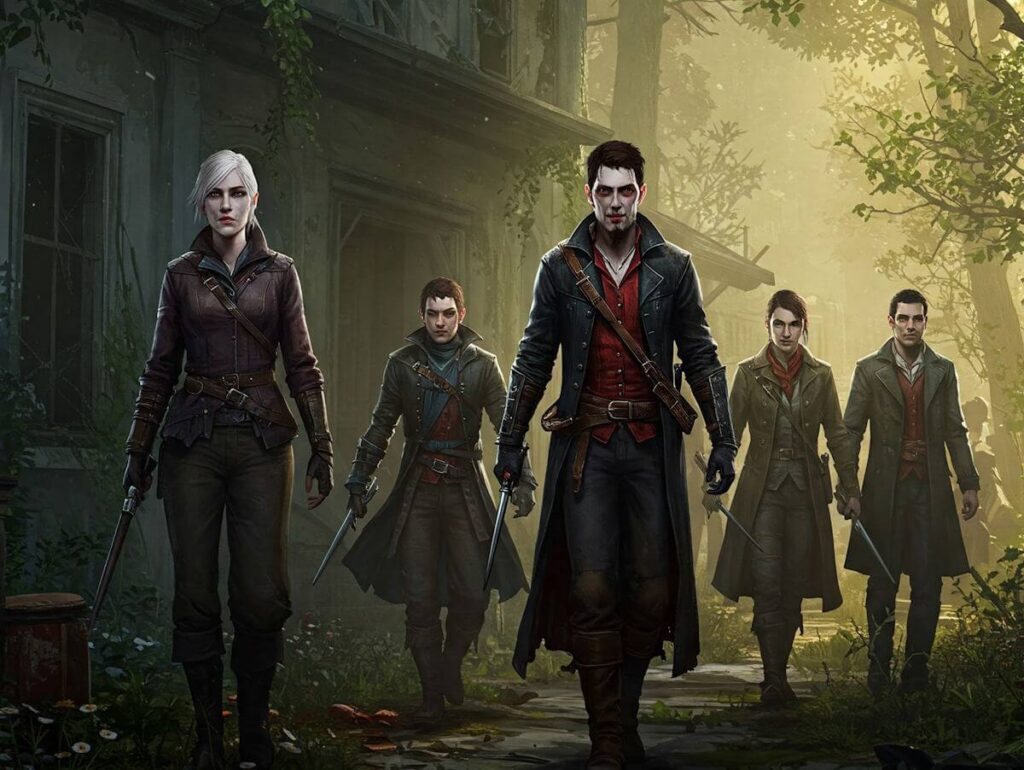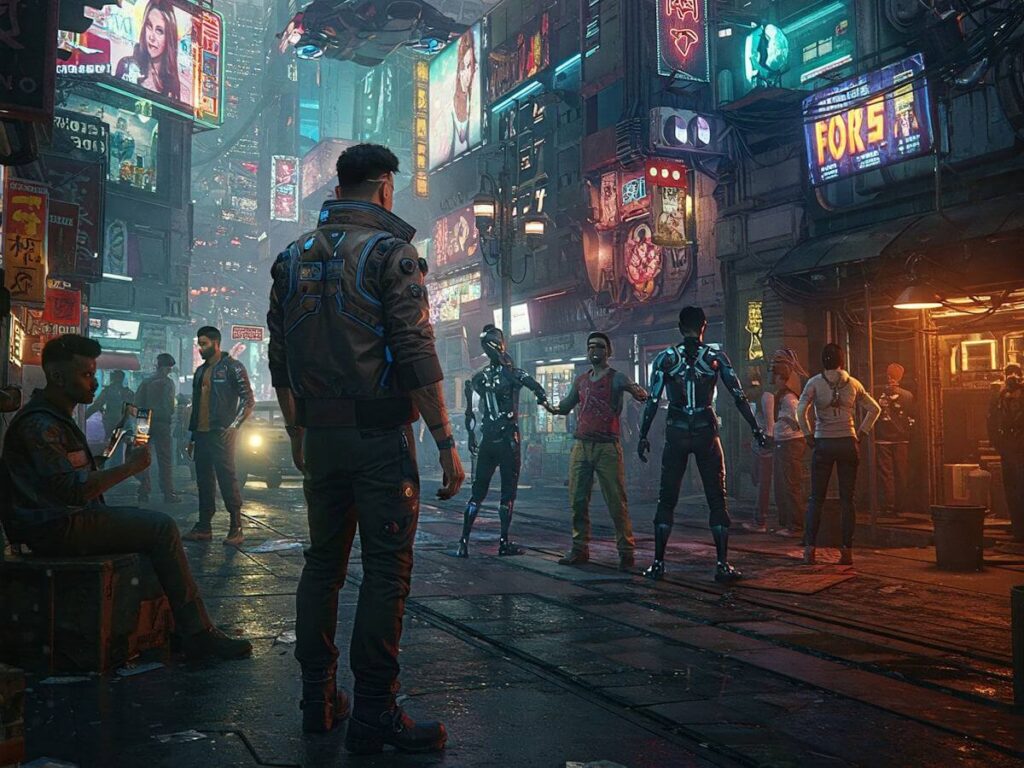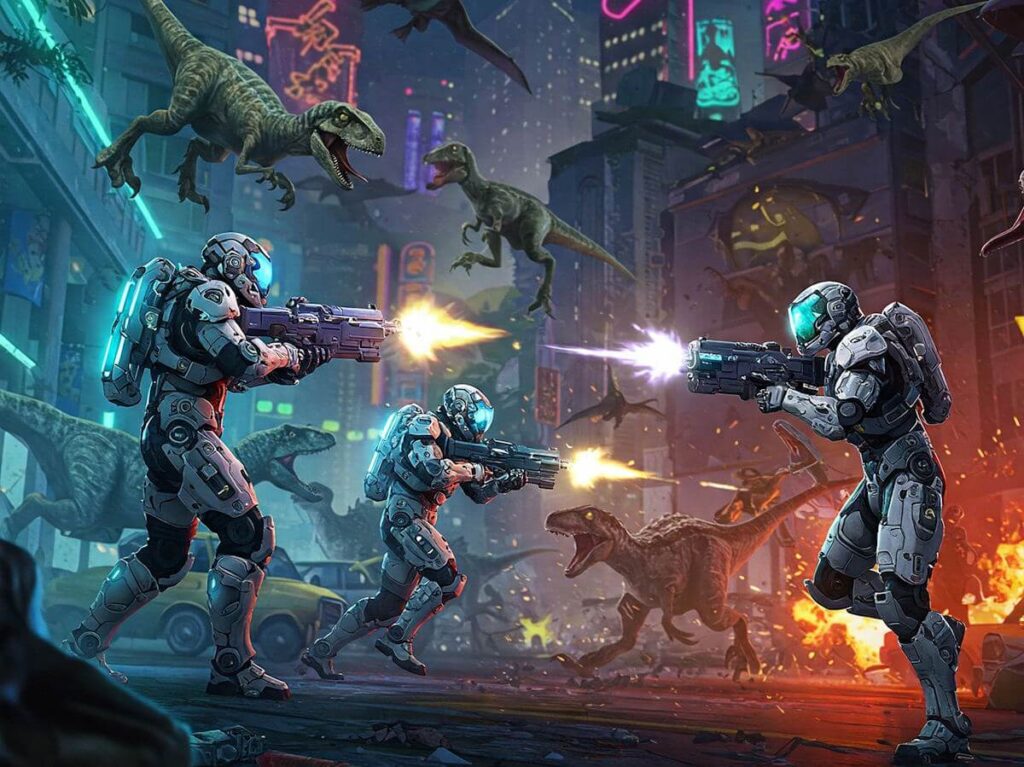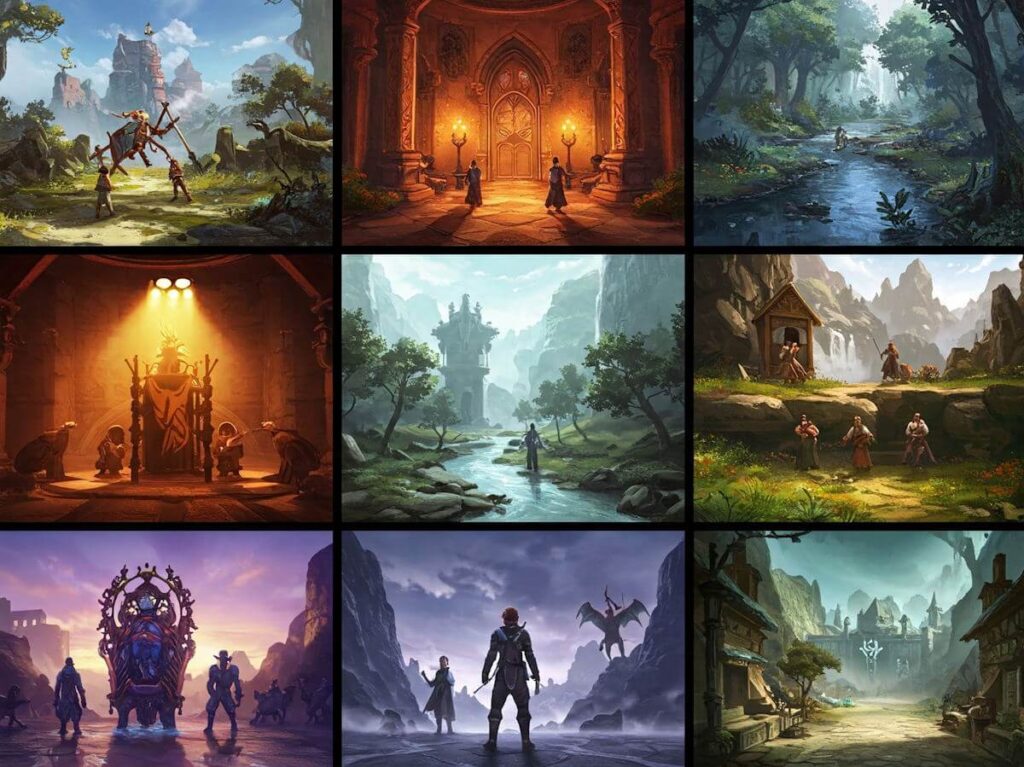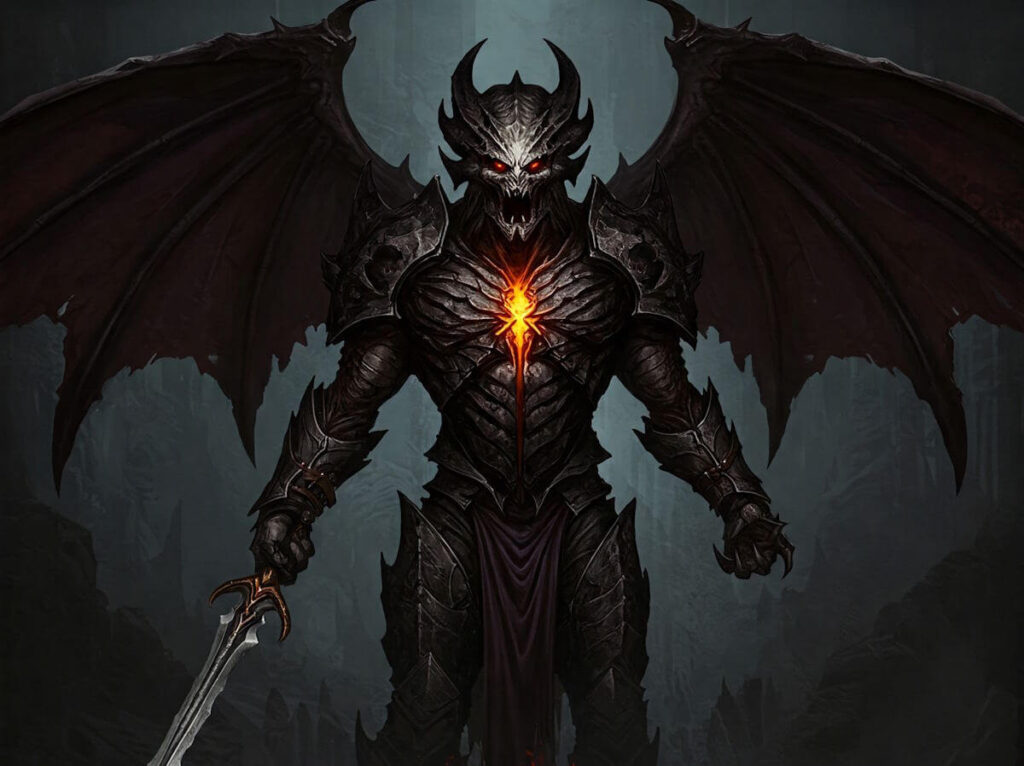Redfall, the much-anticipated vampire shooter developed by Arkane Studios, presents a unique blend of action and narrative, set in a fictional town in Massachusetts. The game revolves around a group of survivors who must fend off a horde of bloodthirsty vampires that have besieged the town after a mysterious event occurs. The premise combines elements of cooperative gameplay with immersive storytelling, a hallmark of Arkane’s previous titles like Dishonored and Prey, garnering significant excitement among fans and critics alike.
Arkane Studios, renowned for its innovative designs and atmospheric narratives, has a reputation for creating engaging worlds that invite exploration. With its rich history in the gaming industry, the studio aimed to deliver a fresh and compelling gaming experience with Redfall. The game was initially announced during a presentation, hyping players with promises of thrilling combat, intricate character abilities, and a sprawling open world filled with mysteries to uncover. As pre-release marketing ramped up, expectations soared, with many anticipating it to be a landmark title for both the studio and the vampire genre.
However, leading up to its release, there were whispers of concern regarding the project’s development cycle and the challenges faced by the team. Despite the excitement surrounding its launch, some players had begun to speculate on potential issues that might affect the final product. As we delve deeper into the game’s actual performance post-launch, one cannot help but reflect on the significant disconnect between the pre-release anticipation and the outcome. This overview sets the stage for a more extensive examination of Redfall’s release, its gameplay elements, and the factors contributing to its reception, highlighting what went wrong in this intriguing yet flawed title.
Arkane Studios’ Legacy
Founded in 1999, Arkane Studios has established a reputation for creativity and innovation in the gaming industry. The studio gained significant recognition for its work on the critically acclaimed series, Dishonored, released in 2012. This title not only showcased Arkane’s ability to blend immersive storytelling with flexible gameplay mechanics, but also set a new standard for player choice and environmental interactivity. Following this success, the studio continued to flourish with titles such as Prey (2017), which further emphasized their unique approach to game design—a combination of rich narrative experiences and complex systems that allow players to explore and interact with expansive game worlds.
The success of Dishonored and Prey solidified Arkane Studios’ brand as a developer committed to creating compelling narratives within intricately designed settings. As a result, expectations for their subsequent release, Redfall, were understandably high. Fans and critics alike anticipated a new experience that would encapsulate Arkane’s traditional strengths while introducing innovative mechanics in a cooperative multiplayer format. However, this anticipation also meant that any deviations from their established formula would be scrutinized intensely.
Arkane’s established legacy of detailed worlds, engaging characters, and intricate systems raised the stakes for Redfall. The studio’s philosophy of fostering player agency and exploration meant that any perceived shortcomings in these areas would lead to disappointment among a dedicated fanbase. Hence, the expectation bar was set remarkably high. As players ventured into Redfall, they carried with them the weight of Arkane’s storied past, making the success or failure of the game a reflection not just of the new title itself, but also of the studio’s longstanding commitment to quality and innovation in game design.
Gameplay Mechanics and Features
Redfall, developed by Arkane Studios, aimed to revive the vampire shooter genre by focusing on cooperative gameplay, unique character abilities, and an expansive open-world environment. The cooperative multiplayer aspect is a critical feature, allowing teams of up to four players to embark on missions together. Each character possesses distinct abilities that cater to varied play styles, promoting teams to strategize and utilize their strengths effectively. This design intended to foster player engagement, encouraging collaboration and communication among players.
Character abilities form the core of the gameplay mechanics in Redfall. Players can choose from an assortment of characters, each with specialized skills designed to tackle different challenges. For instance, one character might excel in stealth, enabling them to approach situations discreetly, while another could be geared toward heavy firepower, offering direct confrontation as a viable option. The diversity in character abilities enhances the gameplay by allowing players to customize their play experience to align with their preferences. However, despite the ambitious nature of these mechanics, certain execution flaws impacted the overall enjoyment.
The open-world environment in Redfall is another key feature that was intended to enhance player immersion and exploration. Designed with various points of interest and dynamic events, players were meant to feel a sense of freedom as they traverse the landscape. However, the experience was reportedly marred by repetitiveness in mission design and a lack of meaningful content in the environment. This led to a sense of stagnation that detracted from the thrill of exploration, which should have been a significant draw for an open-world game.
Ultimately, while Redfall’s gameplay mechanics and features demonstrated great potential, shortcomings in execution restrained the overall experience. Balancing cooperative play, character abilities, and a vibrant open world is no small feat, but the missteps made during development highlight the challenges inherent in creating such a multifaceted game. Moving forward, learning from these experiences could lead to improved designs in future titles.
Technical Issues at Launch
Upon its release, Redfall faced a significant array of technical issues that profoundly impacted the player experience. Among the most pressing concerns were the numerous bugs that emerged, ranging from minor graphical glitches to more severe gameplay disruptions. Such inconsistencies not only created frustration among players but also detracted from the immersive nature that Arkane Studios aimed to deliver. Specifically, issues such as NPCs failing to spawn or interact correctly, along with quest markers being misleading or entirely absent, undermined the overall progression and engagement within the game.
Performance drops were another major factor contributing to the game’s troubled launch. Many players reported significant frame rate reductions, particularly in intensive combat situations or crowded environments. This not only hampered gameplay fluidity but also made encounters with formidable vampire enemies more challenging than intended. The inconsistency in performance across different platforms further exacerbated the situation, as Xbox Series X users experienced relatively better performance compared to those on previous generation consoles. Such disparities raised questions about optimization and the overall technical execution of the game.
Lastly, stability concerns loomed large, with frequent crashes reported across various platforms. Players often found themselves abruptly ejected from gameplay, leading to lost progress and disrupted experiences. This lack of stability significantly tarnished the initial excitement surrounding Redfall, as gamers struggled to fully immerse themselves in the world Arkane had crafted. The combination of these technical setbacks ultimately contributed to a negative reception, casting doubt on the studio’s ability to deliver a polished product. Addressing these issues has since become a priority as Arkane seeks to reassure its player base and restore confidence in its future projects.
Narrative and Storytelling Challenges
The narrative structure of Redfall represents a complex array of storytelling elements that ultimately fell short of player expectations. Central to the game’s experience is its storyline, which attempts to weave together various themes including survival, camaraderie, and the struggle against vampiric forces. However, the execution of these themes often appeared disjointed, making it difficult for players to engage fully with the overarching plot. The initial premise suggested an exciting confrontation with formidable adversaries; nonetheless, the narrative did not deliver the compelling arc that many had hoped for.
Character development is another crucial aspect where Redfall appears to falter. The game’s protagonists, each with unique abilities and backgrounds, lacked the emotional depth necessary to foster player connection. While individualized backstories were presented, they often felt superficial and underexplored, leaving players with a sense of detachment. The interactions between characters exhibited minimal growth, which further contributed to a lack of investment in their journeys. This weak character development ultimately reduced the impact of the story, diminishing the game’s potential to evoke genuine emotional responses.
Moreover, the thematic elements that the developers aimed to embody were muddled throughout the gameplay experience. Instead of a coherent narrative that resonated profoundly with its audience, players encountered a series of disjointed missions with little narrative payoff. The failure to create a seamless blend of gameplay and storytelling diluted the game’s overall impact. As a result, both players and critics alike expressed disappointment, suggesting that the disconnect between the narrative ambitions and the final product led to the game’s inability to resonate effectively. This critical assessment highlights the importance of a well-crafted narrative in video games and underscores the missed opportunity present in Redfall’s storytelling efforts.
Community Reactions and Critiques
The launch of Redfall, Arkane’s highly anticipated vampire shooter, elicited a significant wave of reactions from the gaming community, capturing both player sentiments and critical reviews. As players delved into the gameplay experience, a shared disappointment began to surface across various platforms, reflecting a stark contrast to the excited expectations that surrounded its release. On social media channels, such as Twitter and Reddit, players voiced their concerns about various aspects of the game, ranging from technical issues to gameplay mechanics that failed to resonate with the audience.
Review scores from prominent gaming outlets and user-generated feedback provided a clearer picture of the game’s reception. While initial excitement painted a canvas of hopeful anticipation, the reality proved to be far more complicated. Reviewers noted a lack of polish in the game, with technical glitches and underwhelming AI features often mentioned as critical shortcomings. With scores averaging lower than many had expected, the disparity between pre-launch excitement and post-launch critique became more pronounced.
Specific comments from the community highlighted notable flaws, such as inadequate mission variety and a perceived lack of depth in character development. Many expressed frustration over the fundamental mechanics not living up to Arkane’s historical pedigree in crafting immersive experiences. This feedback signaled not only disappointment but also a longing for the atmospheric narratives and intricate gameplay elements that characterized earlier titles in Arkane’s portfolio. Players lamented that Redfall did not capitalize on the inventive storytelling and engaging gameplay mechanics most commonly associated with the studio, leaving many to speculate on what went wrong during the development process. As discussions unravel, it becomes increasingly evident that community reactions play a crucial role in shaping the legacy of Redfall within the gaming landscape.
Comparison to Other Multiplayer Shooters
In the ever-evolving landscape of multiplayer shooters, industry standards and player expectations continue to shift, shaping how new titles are received by the gaming community. To understand the shortcomings of Redfall, it is essential to compare it with other recent multiplayer shooters, particularly those that have successfully captured player interest and satisfaction. Games like Apex Legends and Call of Duty: Warzone have set a high benchmark with their engaging gameplay, robust mechanics, and vibrant communities.
One notable aspect is the reliance on smooth, fluid gameplay mechanics in well-received titles. For instance, Apex Legends has garnered attention for its unique character abilities, intricate map designs, and a fast-paced experience that keeps players coming back. In contrast, Redfall struggled with gameplay fluidity, leading to frustration among players who anticipated a similar level of engagement. Furthermore, the integration of cooperative elements in these successful shooters is seamless, fostering teamwork and strategy, while Redfall’s attempt felt disjointed and lacked polish, which may have detracted from its appeal.
Moreover, community support and ongoing content updates have become essential for multiplayer games. Both Warzone and Apex Legends benefit from regular updates that respond to player feedback and introduce new content, maintaining players’ interest over time. Redfall, however, faced criticism for its lack of substantial post-launch support and updates, leaving the community feeling abandoned shortly after release. Additionally, the narrative and lore that other successful shooters utilize to engage players were underwhelming in Redfall, failing to create an immersive experience that players crave.
In summary, when evaluated against the backdrop of successful multiplayer titles, Redfall’s deficiencies in gameplay mechanics, community engagement, and overall support significantly highlight the gap between industry standards and player expectations, contributing to its lukewarm reception in a competitive gaming market.
Post-Launch Support and Future Updates
Following the release of Redfall, Arkane Studios recognized the necessity for robust post-launch support to tackle myriad player concerns. The game experienced mixed reviews and significant backlash regarding its gameplay mechanics and technical performance. In response, the developers commenced a series of patches and updates aimed at addressing these criticisms and improving the overall player experience. This support has been crucial for any online game, as it holds the potential to reshape player perceptions of a title over time.
Initially, the development team prioritized critical issues such as frame rate drops, server stability, and gameplay bugs that impeded progress. Subsequent updates included adjustments to weapon balancing, enhancements to enemy AI behavior, and even new content to reinvigorate player interest. The commitment to scheduled updates reflects Arkane’s awareness of the changing dynamics in the gaming landscape and their desire to engage meaningfully with their community.
Additionally, Arkane has employed various community engagement strategies to foster a sense of collaboration with players. This includes actively monitoring player feedback across multiple platforms, hosting developer Q&A sessions, and maintaining an open line of communication through social media channels. By doing so, the studio demonstrates its willingness to listen and adapt based on player input, which is vital for long-term retention in the competitive gaming market.
However, while these ongoing updates signal a positive direction, the question remains whether they are sufficient to redeem Redfall fully. The impact of these efforts will largely depend on their effectiveness in resolving the underlying issues faced at launch and how they resonate with players over time. Active post-launch support is essential, but it must lead to tangible improvements that enhance gameplay and bring back the trust of the gaming community.
Lessons Learned and Future Implications
The launch of Redfall has provided significant insights into the dynamics of game development and the relationships between studios, games, and player communities. One of the primary lessons learned is the critical importance of community feedback in shaping a game. Engaging with the player base during the development process can yield valuable insights that enhance gameplay mechanics, storylines, and overall player satisfaction. Arkane Studios could have potentially avoided many pitfalls in Redfall had they prioritized this engagement through more open channels for testing and feedback.
Quality assurance also emerged as a crucial focal point. The premature release of Redfall, marred by performance issues and bugs, underscores the necessity of rigorous testing before a game reaches the market. A commitment to quality assurance can not only prevent backlash from keen consumers but also protect a studio’s reputation. Implementing robust testing phases and iterative improvements based on player feedback can lead to a more polished product upon release.
Maintaining a studio’s identity was another aspect overshadowed in Redfall’s development. Arkane Studios is renowned for its strong narrative elements and intricate gameplay design, traits which were not fully realized in this title. In steering its creative direction away from its inherent strengths, the studio may have diluted its unique brand appeal. For future projects, it is vital that Arkane aligns its creative vision with its established identity, ensuring that new titles reflect the hallmark traits fans have come to expect.
The implications of Redfall’s reception extend beyond Arkane Studios. The broader gaming industry can take cues from this experience regarding the importance of fostering strong developer-player relations, maintaining high quality standards, and staying true to a studio’s unique brand. By addressing these areas, developers can cultivate more successful launches and build lasting, positive relationships with their gaming communities.

